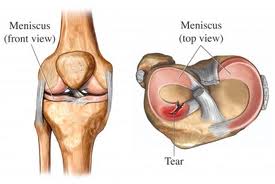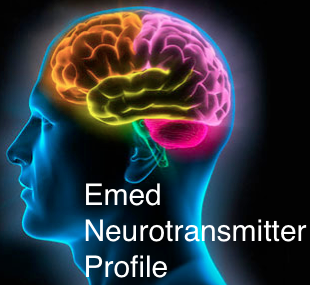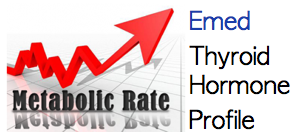Description
The musculoskeletal system is a type of organ system that allows for movement and stability of the body and consists of bones, muscles, joints, tendons, cartilage, ligaments, and other connective tissue.
Unfortunately the demands of daily life in combination with certain genes and dietary factors, can lead to a variety of musculoskeletal disorders which can cause severe pain and disability. Such complaints can affect anyone, from the elite athlete to the non exerciser and can have a great impact on the quality of life.
Emed’s new Musculoskeletal Profile can benefit anyone, but is particularly recommended for individuals with the following symptoms or conditions:
- Muscle stiffness, muscle aches and pains, cramping, spasms and twitching
- Muscle weakness, lethargy and fatigue
- Tremors and impaired muscle coordination
- Restless leg syndrome
- Chronic pain
- Fibromyalgia
- Osteoporosis
- Arthritis
- Chronic fatigue syndrome
- Myopathy
- Bone fractures or breakages
- Long-term stress
- Athletes and people with poor recovery after exercise
- People with regular consumption of alcohol and/or caffeine
- Those with lactose intolerance or coeliac disease
People with musculoskeletal disorders often do not achieve the best possible outcomes, as they are not getting early diagnosis and therefore proper treatment. The management of musculoskeletal disorders is often poor, as nutritional deficiencies are frequently unrecognised and opportunities for prevention are therefore missed.
With the ageing of the population and the reduced physical activity and increasing obesity, there is a dramatic increase in musculoskeletal conditions with a major impact on quality of life and consequent disability.
Emed’s Musculoskeletal Profile is designed to encourage people not to ignore their symptoms or mask them with medications, but to discover nutritional deficiencies at early stage to effectively prevent and treat various musculoskeletal conditions in an effort to restore function and improve quality of life.
If you are not responding to treatment, have re-occurring injuries or ongoing musculoskeletal pain or concerns it may be due to some nutritional deficiencies. Appropriate tests are necessary to identify those deficiencies in order to prevent disease and further complications.
Nutrients that are included in the Emed Musculoskeletal Profile and are known for their ability to support musculoskeletal health as well as to promote healing and a healthy inflammatory response are :
Calcium
One of the minerals most important to the function of the skeletal system is calcium.
Ninety-nine percent of all calcium in your body is found in your bones and teeth. The other 1% is called¶?free calcium¶?¶ and is dissolved in the bloodstream. The dissolved calcium does the actual work by: facilitating muscle contraction, aiding nerve transmission, helping blood clot, and maintaining bone strength.
Blood calcium levels do not directly tell how much calcium is in the bones, but rather, how much calcium is circulating in the blood.
The test will help you determine if your symptoms may be caused by a very low calcium level circulating in the blood. Such symptoms may include muscle cramps, spasms, and twitching and tingling in the fingers and around the mouth.
Magnesium
Magnesium ions regulate over 300 biochemical reactions in the body. They also play a vital role in the reactions that generate and use ATP, the fundamental unit of energy within the cells of the body.
Among researchers, magnesium deficiency is known as the silent epidemic of our times.
Adequate magnesium levels are required to allow the muscles to relax and to reduce excessive muscle tension, cramping, tics, restlessness, and twitching.
Magnesium is essential for bone matrix formation, bone mineral turnover and metabolism, and has an influence on co-fatctors such as vitamin D and calcium.
Magnesium deficiency can affect bone metabolism adversely at any stage of life by causing poor bone development and growth and decreased bone strength.
The red cell magnesium test is the most useful for analysing chronic deficiency as it measures the level of magnesium in the cells, which is indicative of your reserves.
Zinc
Zinc deficiency is more common than many people think.
Zinc is an essential mineral that carries out multiple critical functions in the human body.
It is an essential cofactor for enzymes involved in the synthesis of various bone matrix constituents. This mineral plays an important role in bone metabolism and deficiency has been implicated as a risk factor in the development of osteoporosis.
The status of zinc in bone is known to decline with age. Additionally, individuals with a history of smoking have an added risk for complications involving zinc status and bone health.
Zinc also assists in the synthesis of proteins for the development of healthy muscle tissue.
Vitamin D
Your body synthesizes vitamin D when exposed to the sun. However, vitamin D deficiency is wide spread around the world and is linked to osteoporosis, muscle weakness and muscle wasting among many other disorders.
Vitamin D supports bone and muscle health. It stimulates absorption of dietary calcium, ensuring an adequate supply to harden your bones.
Vitamin D also helps regulate bone growth and remodeling, the process of replacing old bone with new.
CoQ10
The skeletal muscles, heart, brain and other organs require CoQ10 to create optimal energy production for growth and repair.
Production of CoQ10 decreases with age and the use of certain medications (statins, beta- blockers, etc.).
CoQ10 can prevent the over-expression of pro-inflammatory compounds, thereby reducing oxidative damage to the muscle cells.
It is important in muscle function and coordination, and appears to protect against muscle damage resulting from intense exercise.
CoQ10 also may help directly with muscle growth and strength.
Why Get Tested Through Emed?
Firstly, you will save yourself the time and hassle of having to go and wait at your GP’s clinic for an appointment.
The Qualified Emed team is happy to answer any questions you may have regarding the Musculoskeletal Profile, and will send you your test referral directly.
All you need to do then is go to your nearest collection centre to have your sample taken for testing – we will even tell you where this is!
When we receive your results, we look at what your nutrient levels are, and what they should be for optimal health. We don’t just look at standard reference ranges given by test labs, which is how blood tests are often interpreted.
We take notice if you have suboptimal nutrient levels and help you get your health back on track before you become severely deficient. If you already have nutrient deficiencies, we will guide you through restoring nutrient levels safely and effectively.
The Testing Process
Once you have purchased your test, an Emed Integrative Medicine Practitioner will contact you with details of your nearest Healthscope collection centre for you to have your blood sample taken.
Please Note – This test profile can only be used by people with access to Healthscope Collection Centres (Australia wide), as blood samples need to be drawn.
To find out where your nearest Healthscope Collection Centre is contact us.
Once your results have been processed, your Emed Practitioner will analyse the test results for you and provide an easy-to-understand but comprehensive manual and report.
The comprehensive manual will show you:
- What your tested nutrient levels are, and what they should be
- What dietary, lifestyle and nutritional strategies to take in order to restore optimal levels
- Which exact natural supplements are right for you based on your individual result
- What dosage and time to take your nutritional supplements, if required
- Ongoing online support from Dr. Hooper and The Emed Team to help you implement any recommended dietary changes and get the best results from the test.
What Does The Cost Cover
The website cost for the Musculoskeletal Profile covers the test referral, the test itself, processing of all information and interpretation and collation of final results into your personalised comprehensive report.
Fees for physical transportation to your nearest collection centre are to be covered by yourself at time of appointment.












